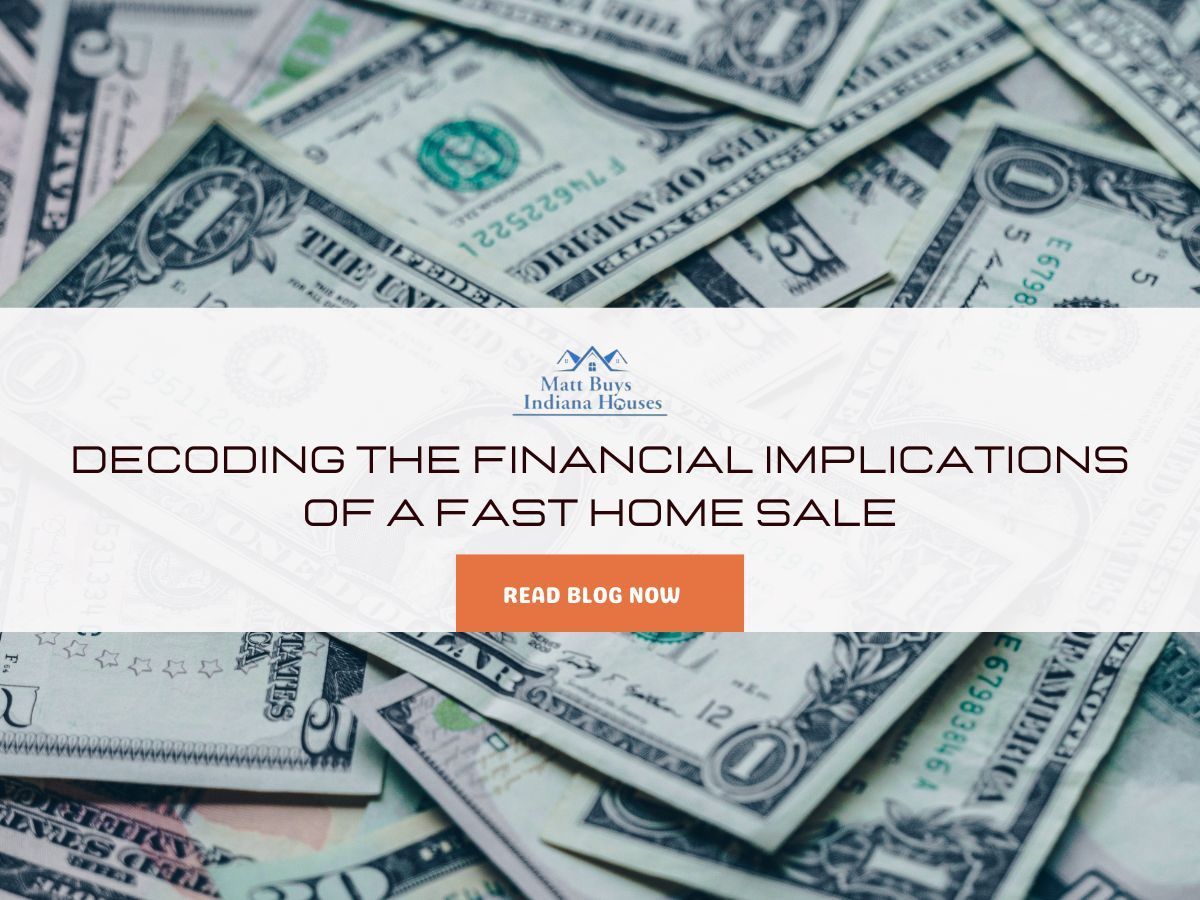Call or Text (574) 601-3340 to get a cash offer on your house!
The Impact of the Tech Revolution on the Housing Market
Apr 09, 2024
In today's real estate market, technological advancements are reshaping the way we buy, sell, and experience properties. From innovative solutions promoting environmental sustainability to personalized experiences tailored to individual preferences, technology is revolutionizing every aspect of the housing industry.
In this dynamic landscape, understanding the role of technology in driving sustainability, enhancing customer experiences, and providing market insights is essential for both professionals and consumers alike.
Augmented Reality (AR) and Virtual Reality (VR) Integration in the Housing Market
Augmented Reality (AR) and
Virtual Reality (VR) have rapidly become transformative forces in the housing market, revolutionizing how properties are marketed, viewed, and sold. These technologies offer immersive experiences that enable prospective buyers to visualize properties in unprecedented detail, streamlining decision-making and enhancing customer satisfaction.
Enhanced Property Viewing Experience
In property viewing, AR and VR provide potential buyers with virtual tours of homes, allowing them to explore every nook and cranny without physically visiting the property. This not only saves time and effort but also accommodates buyers who may be unable to attend in-person viewings due to geographical constraints or scheduling conflicts.
By immersing themselves in virtual walkthroughs, buyers can gain a comprehensive understanding of the property's layout, size, and features, fostering a more informed decision-making process.
Virtual Staging for Property Presentation
AR and VR technologies also empower real estate professionals to stage properties virtually, presenting them in their best possible light. Through virtual staging, empty or outdated properties can be transformed into visually appealing spaces, helping buyers envision the property's full potential and increasing its marketability.
This virtual enhancement not only accelerates the sales process but also minimizes the costs and logistical challenges associated with physical staging.
Innovative Marketing Strategies
AR and VR also facilitate innovative marketing strategies that captivate potential buyers and set properties apart from the competition. With AR-enabled mobile apps, prospective buyers can point their smartphones at a property and instantly access a wealth of information, including price, specifications, and nearby amenities.
This interactive experience engages buyers on a deeper level, driving interest and generating leads in a highly competitive market.
Reshaping Collaboration and Communication
In addition to revolutionizing property viewing and marketing, AR and VR technologies are reshaping the way real estate professionals collaborate and communicate.
Virtual reality meetings and conferences enable agents, clients, and stakeholders to convene regardless of their physical location, fostering seamless communication and collaboration in an increasingly globalized industry. This virtual connectivity transcends geographical boundaries, facilitating more efficient decision-making and deal closure.
Artificial Intelligence (AI) in Property Valuation
Artificial Intelligence (AI) is revolutionizing property valuation by leveraging advanced algorithms and data analytics to predict property values with unparalleled accuracy and efficiency.
Traditionally, property valuation relied heavily on manual appraisal methods, which were prone to subjectivity and inconsistency. However, AI-powered valuation models offer a data-driven approach that incorporates a myriad of factors, including property characteristics, market trends, and economic indicators, to generate precise and reliable valuations in real time.
One of the key advantages of AI in property valuation is its ability to process vast amounts of data rapidly and objectively. By analyzing historical sales data, demographic trends, and property attributes, AI algorithms can identify patterns and correlations that human appraisers may overlook, resulting in more accurate valuations.
AI-driven valuation models continuously learn and adapt from new data inputs, ensuring that valuations remain up-to-date and reflective of market dynamics. AI also enables predictive modeling techniques that forecast future property values based on emerging market trends and predictive indicators.
By analyzing factors such as population growth, infrastructure development, and economic forecasts, AI algorithms can anticipate shifts in property values and inform strategic decision-making for buyers, sellers, and investors. This predictive insight empowers stakeholders to make informed investment decisions and mitigate risks in an ever-changing market landscape.
AI-powered valuation models offer scalability and consistency, allowing for the valuation of large portfolios of properties with unparalleled efficiency. Whether appraising individual homes or entire real estate portfolios, AI algorithms can streamline the valuation process, reducing turnaround times and operational costs for real estate professionals.
This scalability also enables stakeholders to evaluate properties across diverse geographic regions and markets, facilitating portfolio diversification and risk management strategies.
Artificial Intelligence (AI) is transforming property valuation through:
- Data Processing: AI rapidly analyzes vast amounts of data, identifying patterns and correlations for more accurate valuations.
- Predictive Modeling: AI forecasts future property values based on market trends and predictive indicators.
- Scalability: AI enables efficient valuation of large portfolios of properties, reducing turnaround times and operational costs.
- Consistency: AI ensures consistent and objective valuations across diverse properties and markets.
Smart Home Integration
In recent years, the real estate landscape has been significantly reshaped by the rapid emergence of smart home technologies. These innovative advancements, ranging from automated lighting systems to intelligent thermostats and security cameras, are transforming the way we interact with and perceive our living spaces.
The integration of smart home technologies into real estate has not only enhanced convenience and comfort for homeowners but has also introduced a new dimension of efficiency and sustainability to the housing market.
One of the key drivers behind the rise of smart home technologies in real estate is the growing demand for convenience and connectivity among homeowners.
- Smart home devices offer remote control over various home functions like thermostat adjustment, security camera monitoring, and energy management. This enhances convenience and creates a seamless living experience through automation and interconnectedness.
- Smart home tech, like smart thermostats and lighting, boosts energy efficiency via sensors and data analytics. By adjusting based on occupancy and conditions, they cut utility costs and carbon footprints. This aligns with eco-conscious living and green tech adoption.
- Integrating smart home tech boosts property resale value. Buyers seek modern, tech-savvy homes, driving developers and sellers to include smart features in new constructions and listings, setting their properties apart in a competitive market.
- Smart home tech extends to commercial real estate, aiding energy optimization, operational efficiency, and tenant satisfaction. Landlords and managers use remote monitoring, predictive maintenance, and data-driven decisions for cost savings and improved experiences in office and retail spaces.
Blockchain in Real Estate Transactions
Blockchain technology has emerged as a disruptive force in the realm of real estate transactions, promising increased transparency, efficiency, and security throughout the property buying and selling process.
At its core, blockchain is a decentralized digital ledger that records transactions across a network of computers, providing a tamper-proof and immutable record of data. Below are the key impacts of blockchain technology on real estate transactions:
- Streamlining Conveyancing Process: Traditionally, property transactions involve multiple intermediaries, including lawyers, notaries, and title companies, leading to a cumbersome and time-consuming process.
- Efficient and Secure Transactions: Blockchain technology can execute transactions more efficiently and securely by reducing intermediaries and minimizing the potential for fraud or disputes.
- Utilization of Smart Contracts: Smart contracts automate and enforce the transfer of ownership, ensuring accurate and transparent transactions by having the terms of the agreement directly written into code.
- Revolutionizing Property Record-keeping: Blockchain provides a decentralized and tamper-proof repository for property ownership records, mitigating fraud risk, eliminating discrepancies, and offering greater transparency and accessibility.
- Blockchain-based Tokenization: Tokenization allows investors to purchase fractional ownership stakes in properties through digital tokens, democratizing access, lowering barriers to entry, and enhancing liquidity in the real estate market.
Environmental Sustainability Solutions
In recent years, there has been a growing recognition of the importance of environmental sustainability in the housing market. As concerns about climate change and resource depletion continue to escalate, technology has emerged as a powerful tool for promoting sustainability and reducing the environmental impact of residential properties.
One of the key ways technology is promoting sustainability in the housing market is through the use of renewable energy sources. Solar panels, for example, have become increasingly affordable and accessible, allowing homeowners to generate their own clean energy and reduce reliance on fossil fuels.
Also, advancements in battery storage technology enable homeowners to store excess solar energy for use during times of peak demand or when sunlight is unavailable, further enhancing energy independence and sustainability.
Smart home automation systems play a crucial role in optimizing energy usage and reducing carbon emissions. These systems leverage sensors, data analytics, and machine learning algorithms to monitor and control various aspects of home energy consumption, such as heating, cooling, and lighting.
By automatically adjusting energy usage based on occupancy patterns and environmental conditions, smart home automation systems can significantly reduce energy waste and lower utility bills.
Technology also facilitates the adoption of sustainable building practices and materials in residential construction. Innovations such as green roofs, insulated concrete forms, and energy-efficient windows help improve thermal insulation, reduce energy consumption, and minimize environmental impact.
Technological Solution
Additionally, building information modeling (BIM) software enables architects and developers to design more energy-efficient and environmentally friendly buildings by simulating various design scenarios and evaluating their environmental performance.
Personalized Customer Experiences
New Paragraph










